Altruism is defined as selfless concern for the good of others. For over twenty years, this notion has united and inspired the benefactors, beneficiaries, volunteers, and teams of Karuna-Shechen. It is also with this notion in mind that our educational programs in India and Nepal provide a positive education. While schools are still closed due to the Covid crisis, our teams on the ground, in collaboration with local teachers, adapt to the sanitary conditions in order to bring all their support to children deprived of school.
Natural altruism in children
The question of the appearance and development of altruistic behavior has long raised questions. Are we born altruistic, or do we become so ? Recent research, as mentioned by Matthieu Ricard in one of his articles, has brought some answers.
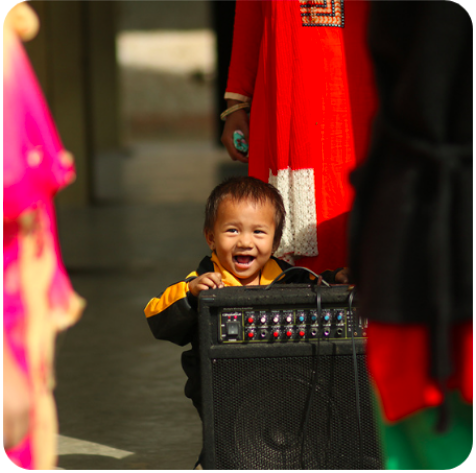
Altruism appears in children from a very young age. They begin to show selfless helping behaviors between 14 and 16 months of age, and at 18 months they have the same average reaction time as an adult to spontaneously help someone. They are able to provide so-called “instrumental” and “empathic” help, i.e. they can both feel and understand the desires and emotions of other people. This is made possible by the appearance, almost immediately after birth, of empathy.
Children are indeed endowed with this ability to feel other people’s emotions from their first weeks of life. This ability, which is necessary for altruistic behavior, will develop continuously from birth until the age of six, when the child gains access to the general concept of empathy.
This early manifestation of prosocial behavior, before parents have begun to instill rules of sociability, has been observed throughout the world. They are therefore attitudes that occur without any learning or cultural transmission. All children possess these qualities innately. Similar behaviors have even been observed in monkeys: altruism would then have appeared naturally in our common ancestors, several million years ago.
Altruism and education: from innate to acquired
If children possess altruistic qualities in an innate way, the environment in which they will grow up and the stimuli they will receive will be decisive for them to continue to develop these qualities. Parents and schools will play an essential role.
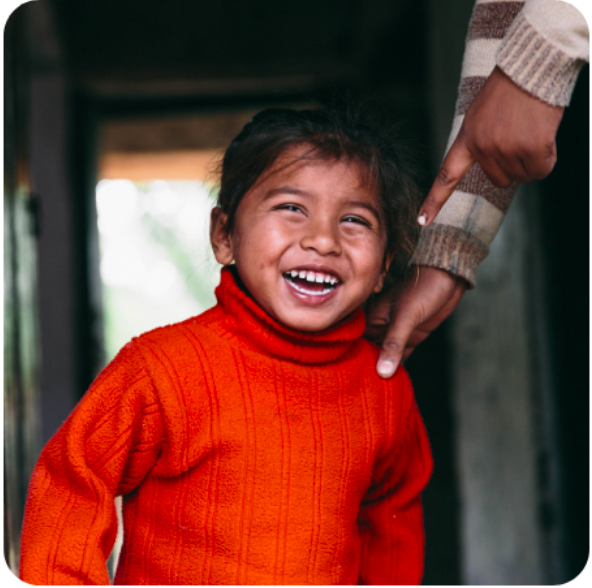
The parents’ behavior and educational practices are indeed essential in the development of the child. The way parents act, with each other, with others and of course with their children will greatly influence the latter. Witnessing prosocial behavior on the part of adults can indeed lead children to altruism. Experiments have also shown a positive correlation between the level of empathy of parents and their children. Secondly, from a purely educational point of view, a caring parent-child interaction with education that has clear, stable, justified and understandable limits contributes to the development of the child’s empathy.
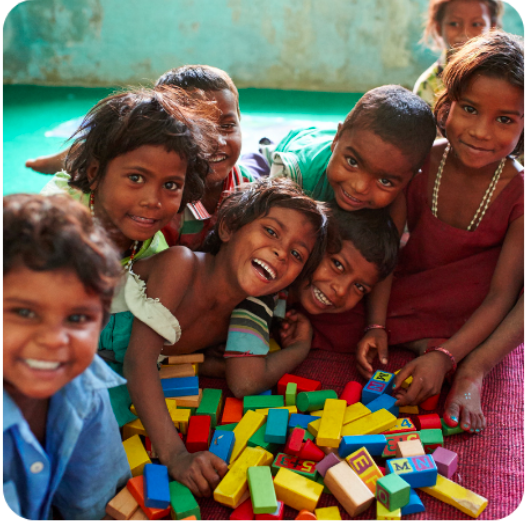
Outside of the family setting, the school has a great responsibility in reinforcing prosocial behavior. Integrating the child into a group dynamic and allowing them to create social links will lead them to increase their empathy. Then, the stimuli provided by the teachers allow a better development of these behaviors. In the long term, this leads to benefits in the evolution of cognitive functions, i.e., a person’s ability to receive, process and use information concerning their environment.
The school is a privileged place that allows the cultivation of altruism without necessarily teaching about it.
Karuna adapts to the health situation
Karuna has been running educational programmes in India and Nepal for many years. Aware of the importance of education during all phases of a child’s development, our teams support students from pre-school to high school.
Since the summer of 2020, these programmes have had to be adapted to the health context created by Covid-19. With schools closed, a home schooling system was introduced.
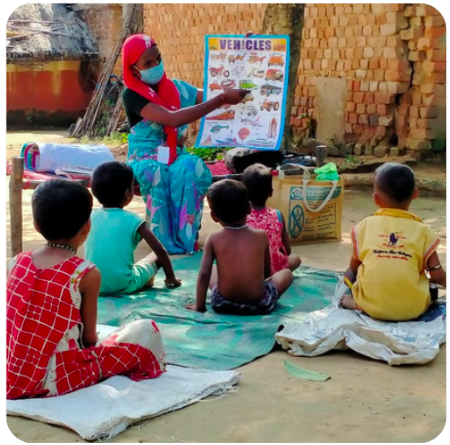
In India, our local representatives travel to our intervention villages on a daily basis. In addition to providing the children with reading, writing and drawing materials, they organise fun activities with groups of 4 or 5 students. This allows the children to learn, have fun and exercise while respecting health measures. In this way, 2,760 children in 92 villages in the state of Jharkhand have been able to continue to receive regular stimulation.
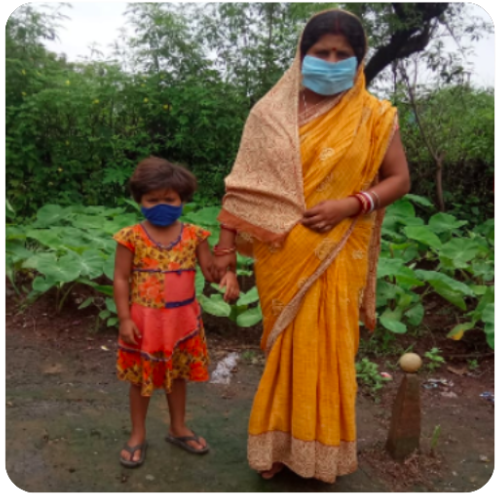
Bina Devi, the mother of one of the children in the program, says :
“The children were bored because all the educational centers are closed. The parents have to go to work, so they have to leave them alone at home all day long. So they felt very lonely. But once your local representatives started visiting them and doing different activities with them, they stopped being bored. Sometimes the children even ask your staff to stay a little longer because they want to play with them more. This makes them happy, and us as well ! “
In Bihar State, our second area of intervention in India, distributions of educational materials had also been organized following the first wave of the pandemic. When the situation improved, our teams were able to reopen schools with the permission of the government. As a result, small groups of children were able to return to school. Unfortunately, the second wave that ravaged the country forced our staff on the ground to close the schools in April. They have been closed since then. As the health situation seems to be stabilizing, our teams are doing everything possible to allow the children to return to school.
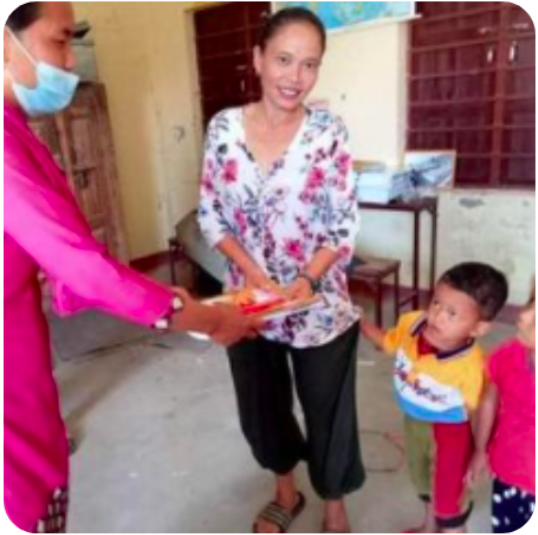
In Nepal, the programme consists of sending teachers from house to house once a week to spend time with students, giving them homework and school materials. Karuna supports the teachers throughout this process with training and the provision of teaching materials. This programme has enabled many children at primary level to continue to receive an education. Unfortunately, the health situation in the country is still worrying and no date for the reopening of schools is known.
In response to this, we have just launched a pilot project in Nepal for home schooling for kindergarten children. This project started in June and will last between 3 and 5 months depending on the weather conditions.
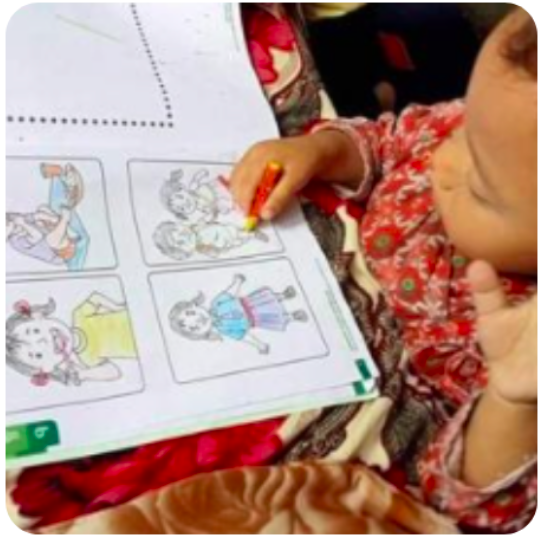
The idea of this new program is to get parents as involved as possible in their children’s education. To do this, the 12 teachers involved in the program distributed and explained the illustrated Home Learning Activity Book. Through this book, published by the Nepalese Ministry of Education, parents can help their children receive the fun and creative education that is so important at this age.
Ranjana Lama facilitates education projects in 2 government schools in Kavre district, Nepal. Since the closure of the schools, she has been travelling from house to house to tutor the younger children. During this time, she also provides parents with keys to create a conducive learning environment at home. A real teacher-parent-child interaction is taking place and that benefits the 225 students participating in this pilot project !
This crisis has brought out a lot of mutual aid and solidarity. Thanks to a convergence of efforts by parents, schools and associations like Karuna, pupils can learn from home. I see my students growing and learning better and better every day !
Both innate and acquired, altruism is a quality deeply rooted in human nature. Setting up educational programs that allow children to express their full potential is part of Karuna’s mission. The crisis that the world is currently experiencing does not spare our areas of intervention, and by adapting the association’s projects, our teams in the field continue to ensure that as many children as possible benefit from a caring education.

